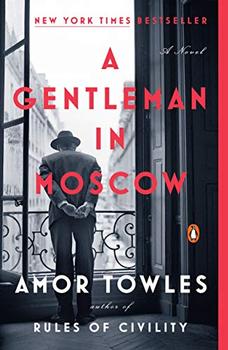Summary | Excerpt | Reviews | Beyond the book | Read-Alikes | Genres & Themes | Author Bio

A Novel
by Robert Littell
Our lives no longer feel ground under them.
At ten paces you can’t hear our words.
With short measured breaths and hands darting about in poetic deliverance, a lone poet casts words to the air that each condense into a moment whose consequences will weigh on him for the rest of his life. His identity, now virtually unknown, claws at a half-empty audience, not for money, but for the next batch of cigarettes that might last him through the night. His calling is more than an augur’s foretelling; it is a craft that describes the events surrounding him in vivid detail, replete with morals and a naturalism that cuts to the core of things in an age that needed it most. But it is this craft that will cast him into dungeons far darker than the seedy cabaret where he delivers his sermons for meager alms; it will ruin the very thing that defines him. His name is Osip Mandelstam and this is his story.
But whenever there’s a snatch of talk
it turns to the Kremlin mountaineer,
the ten thick worms his fingers,
his words like measures of weight,
Robert Littell’s fictional recreation of the poet’s triumph and downfall through an assortment of different characters and perspectives - each equally as interesting as the next - make this riveting tale of woe into a page-turner of the highest order. Each character’s perception of events produces a mosaic of musings of the age and of the crippling events occurring within it.
The towering mythical presence of Joseph Stalin is decanted into a fallible human likeness teeming with sins and vices. Osip Mandelstam is the ardent idealist; fueled by poetic fervor, Mandelstam’s unremitting criticism of the government forms the basis of the tale. Nadezhda, his wife, is strong, devoted, and enamored of her husband’s gift, through her perspective we learn more about Mandelstam than through any other. Anna Ahkmatova is Mandelstam’s faithful friend and poetic confidant; she helps him navigate the darker days that follow his release before succumbing to a similar fate of her own. Fikrit Shotman, a genial and patriotic world-class weightlifter, plays the true believer who is condemned to the gulags for nothing more than a sticker pasted on his steamer trunk. Boris Pasternak, the Nobel laureate and counterpoint to Mandelstam’s idealism, is introduced as a historical and enigmatic deus ex machina, altering Mandelstam’s seemingly inevitable fate.
the huge laughing cockroaches on his top lip,
the glitter of his boot-rims.
Ringed with a scum of chicken-necked bosses
he toys with the tributes of half-men.
This is a dark tale of power, paranoia, and poetry conveyed in a highly readable, fast-paced narrative that still manages to retain a profound depth of feeling and emotion. Littell’s prowess as a spy novelist shines forth in his ability to recreate an inscrutable police state of backstabbing, intrigue, and the victimization of the masses. That Stalin should take such an avid interest in poetry, considering it to be above prose and playwriting, and yet persecute one of the greatest poets of the century - all because of a single poem that criticized his regime - is a powerful illustration of the age.
One whistles, another meows, a third snivels.
He pokes out his finger and he alone goes boom.
He forges decrees in a line like horseshoes,
One for the groin, one the forehead, temple, eye.
Littell’s remarkable epilogue reminds the reader that this history was once a living, breathing moment of a not-so-distant past that still, though perhaps indirectly, affects the present day. It also reminds us that while reality might favor the powerful, posterity favors the wordsmith. A profound novel whose message of suffering and redemption echo that of some of Russia’s great works commingle with a refreshing narrative style that make Robert Littell’s latest work an exceptional example of historical fiction.
He rolls the executions on his tongue like berries.
He wishes he could hug them like big friends from home.
--Osip Mandelstam, "The Stalin Epigram"
![]() This review was originally published in The BookBrowse Review in July 2009, and has been updated for the
July 2010 edition.
Click here to go to this issue.
This review was originally published in The BookBrowse Review in July 2009, and has been updated for the
July 2010 edition.
Click here to go to this issue.

If you liked The Stalin Epigram, try these:

by Amor Towles
Published 2019
From the New York Times bestselling author of Rules of Civility - a transporting novel about a man who is ordered to spend the rest of his life inside a luxury hotel.

by Anthony Marra
Published 2016
From the New York Times bestselling author of A Constellation of Vital Phenomena - dazzling, poignant, and lyrical interwoven stories about family, sacrifice, the legacy of war, and the redemptive power of art.
Your guide toexceptional books
BookBrowse seeks out and recommends the best in contemporary fiction and nonfiction—books that not only engage and entertain but also deepen our understanding of ourselves and the world around us.